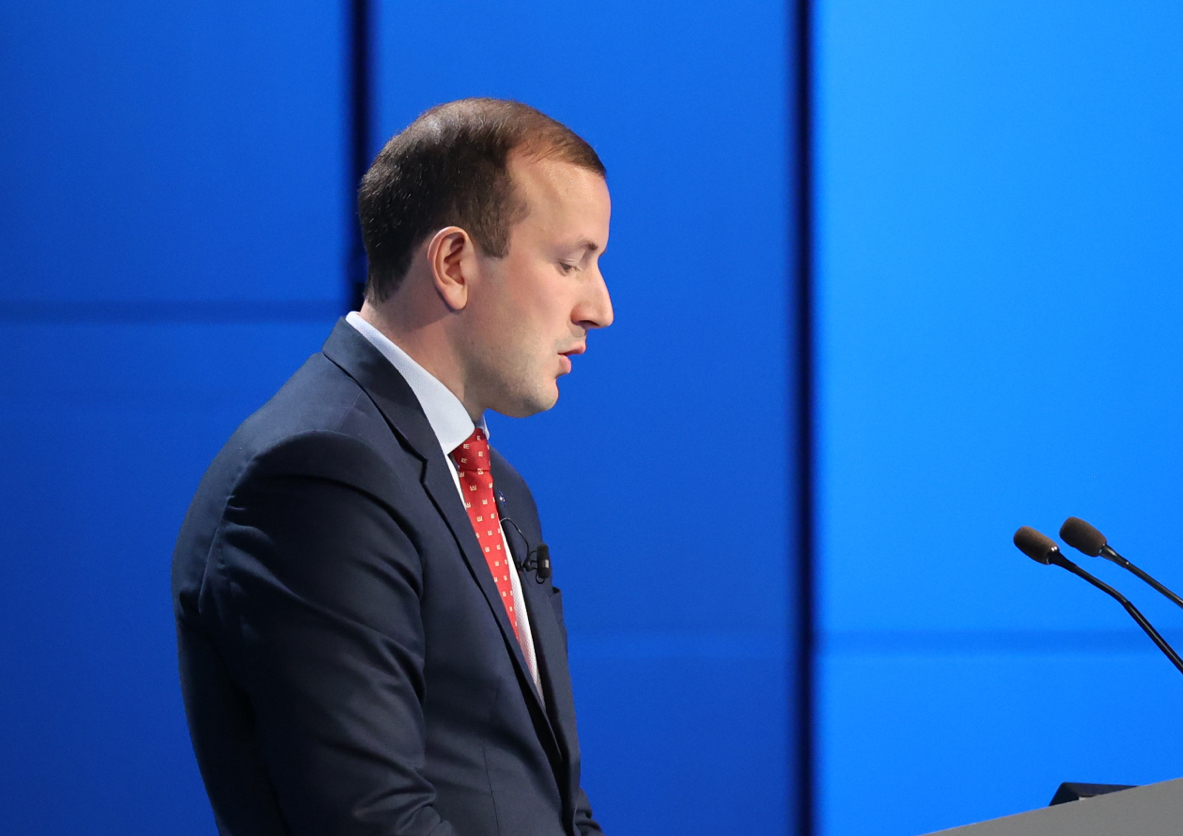Seeking a greater role in the Arctic, the EU is ready to link climate with foreign policy
Europe’s trillion-euro plan to reduce emissions will form the cornerstone of an Arctic policy that will see Brussels increasingly playing the role of a great power in the region.

Increased competition for natural resources and great-power rivalry in the Arctic has pushed the European Union to pledge to play a more assertive role in the region’s international affairs. The EU’s more assertive role will see Brussels put the full weight of its political and economic clout behind efforts to steer development in the region in a direction that is in line with its priorities.
The latest iteration of the EU’s Arctic strategy — published on Wednesday, just ahead of the opening of the Arctic Circle Assembly, a major conference of policymakers, academics and others with an interest in the region — focuses heavily on efforts to prevent climate degradation in the region and beyond. That comes most notably in the form of a call to ban on fossil fuel extraction in the Arctic. But the strategy also marks a significant departure for Brussels by including a clear foreign policy ambition.
The change comes amid concerns in Brussels that a growth in military, shipping and other activities in the Arctic it fears could harm the bloc’s interests.
[Greenland is set to receive half of EU funding for ‘overseas strategic outposts’]
European Commissioner for the Environment, Oceans and Fisheries Virginijus Sinkevičius and other EU officials on hand at the Arctic Circle conference in Reykjavík to present the policy have repeatedly stressed that though the eight Arctic countries should remain in the lead when it comes to making policy towards the region, Brussels is prepared to act on issues such as climate that cannot be addressed by a single country alone.
“If you want to be serious and you want to achieve certain goals, you have to have a strategy: measurable, implementable goals, together with sometimes even very clear timelines for how you want to do it and, of course, funding,” Sinkevičius said in an interview. “I think we have most of these elements very well covered in our strategy and I think it shows the importance of the region to the European Union.”
Some funding for the EU’s ambitions in the Arctic will take the form of investment in regional development in the northern regions of EU members Sweden and Finland, as well as in Greenland, which — though not a part of the EU — is partly administered by Denmark and maintains a special relationship with the bloc as an “overseas country.” The bulk, however, is expected to come from the EU’s €1 trillion ($1.2 trillion) effort to make the bloc climate neutral in 2050 as part of a global bid to keep temperatures under the 1.5 degrees Celsius increase scientists say is necessary to prevent the worst effects of climate degradation.
Known as the European Green Deal, the plan will form the cornerstone of the EU’s activities in the Arctic. In part, according to Sinkevičius, because climate and foreign policy are increasingly intertwined.
“You cannot separate the geopolitics from the developments in the Arctic,” he said. “There are two parts the policy is built around — geopolitical and climate. You cannot have one without the other, because, in order to achieve most of our climate goals, geopolitics will come into play.”
The policy must be approved by the EU’s 27 member states before it becomes the bloc’s official strategy towards the region.